Turkey’s arms imports between 2015 and 2019 were 48 percent lower than the previous five-year period, according to the latest data released by the Stockholm International Peace Research Institute (SIPRI).
Not only did Turkey decrease its arms imports by 48 percent, it also increased arms exports by 86 percent between 2015 and 2019, when compared to the previous five years.
Turkey is fighting several terror groups both inside and outside its borders. Since the 1970s, Ankara has been dealing with the PKK, a multi-billion dollar terrorist organisation that is precisely focused on attacking Turkey, while operating from various centres spanning from Europe to the Middle East.
Both the PKK’s offshoot, the YPG, as well as Daesh, have opened new fronts on the Syrian border against Turkey, especially in the last five years.
Turkish military operations in Syria employ a wide range of domestically produced high-tech unmanned aerial vehicles, tanks, missiles and radar systems. The success of cross-border operations shows Turkey’s progress in the military industry.
The Vision for 2023, for the centenary of the Republic of Turkey, declared by Erdogan, is a list of goals that includes ranking in the top 10 economies in the world and becoming a self-sufficient state in terms of defence.
There are many private companies and public enterprises working on producing high-tech military equipment such as ASELSAN, Turkish Aerospace Industries, Havelsan, Roketsan, TUBITAK, Baykar, Tusas and FNSS Defence Systems.
In the last five years, Turkey has exported unmanned aerial vehicles(UAV), missiles, armoured vehicles, artillery and ships to Pakistan, Malaysia, Oman, Qatar and Azarbaijan, to name the principal markets.
Unmanned aerial vehicles (UAVs)
The Turkish military extensively uses UAVs in terror and cross border operations in Syria. Thanks to the successful integration of bombs in these UAVs, they carried out many successful operations in Syria by hitting terror units with high accuracy.
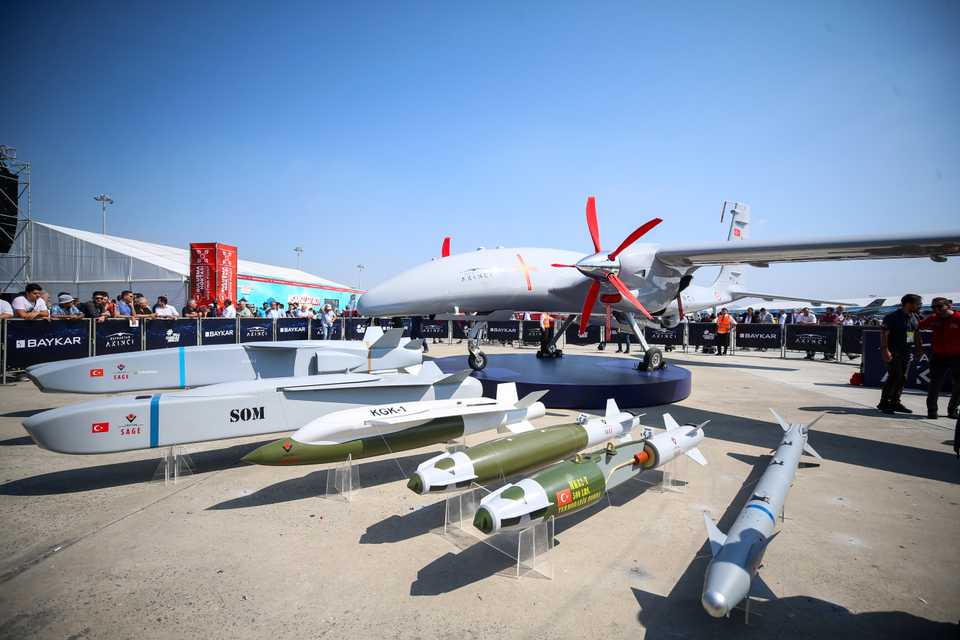
These drones are equipped with the latest smart ammunition systems and have been deployed for tactical reconnaissance and surveillance missions
T-155 Firtina
Another domestically designed and manufactured weapon: the T-155 Firtina, which means ‘storm’ in English, is a self-propelled howitzer that can hit targets located at a distance of 40km in 30 seconds.
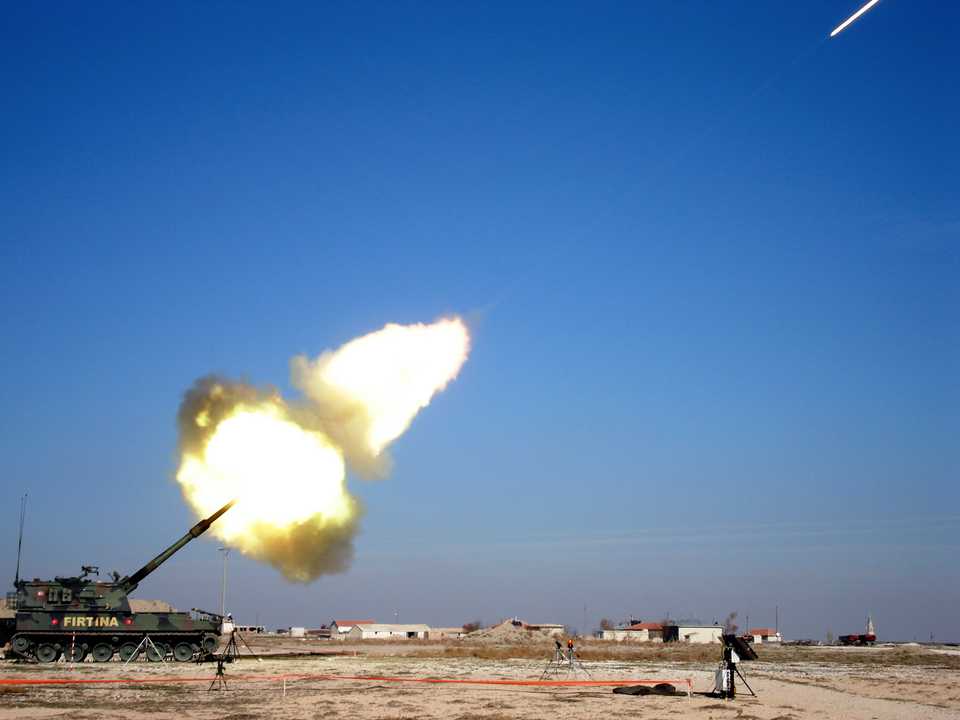
The T-155 has been shipped to many bases in Hatay and Kilis provinces bordering Syria as part of a deterrent for threats coming from the Syrian territory.
T-129 ATAK
T-129 ATAK helicopters, with their guided air-to-ground CIRIT rockets, are used to hit numerous targets that have been laser-marked beforehand by forces on the ground.
The T-129 has the capacity to simultaneously carry eight anti-tank missiles, 12 guided rockets, two stingers and 500 rounds of ammunition for the automatic gun.
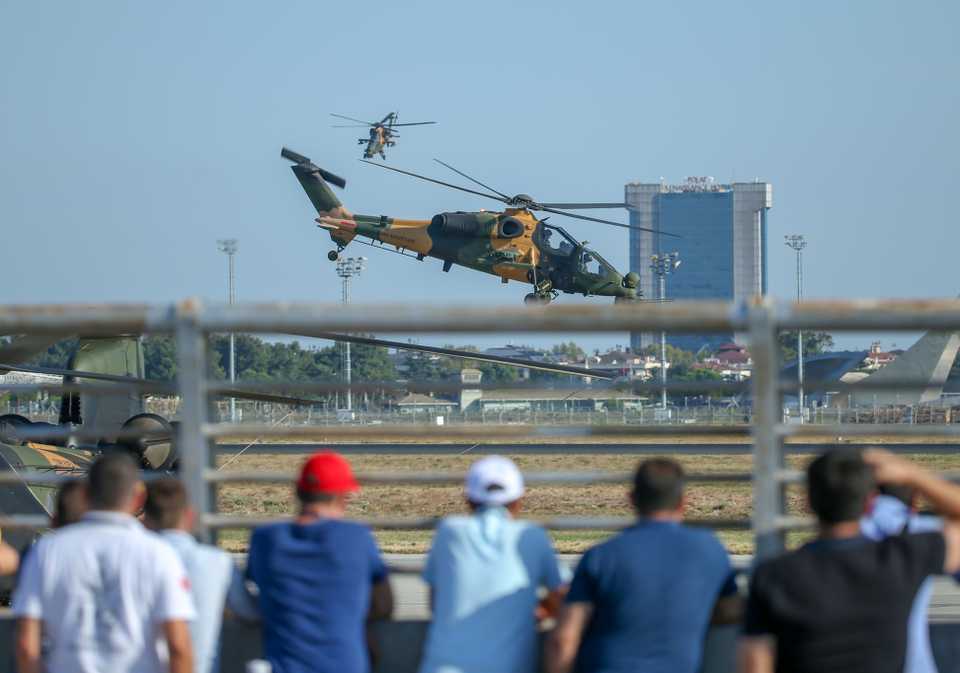
Medium and short-distance missiles
The HISAR air defence missiles project was kicked off in 2007. HISAR-A and HISAR-O are short and medium-range missiles which will be deployed along Syrian border in coming days.
They consist of a Self Propelled Autonomous Low Altitude Air Defence Missile System, Missile Launch System, Low Altitude Missile and Missile Transport and a Loading System, which was developed by Turkish leading defence industry companies ASELSAN and ROKETSAN.
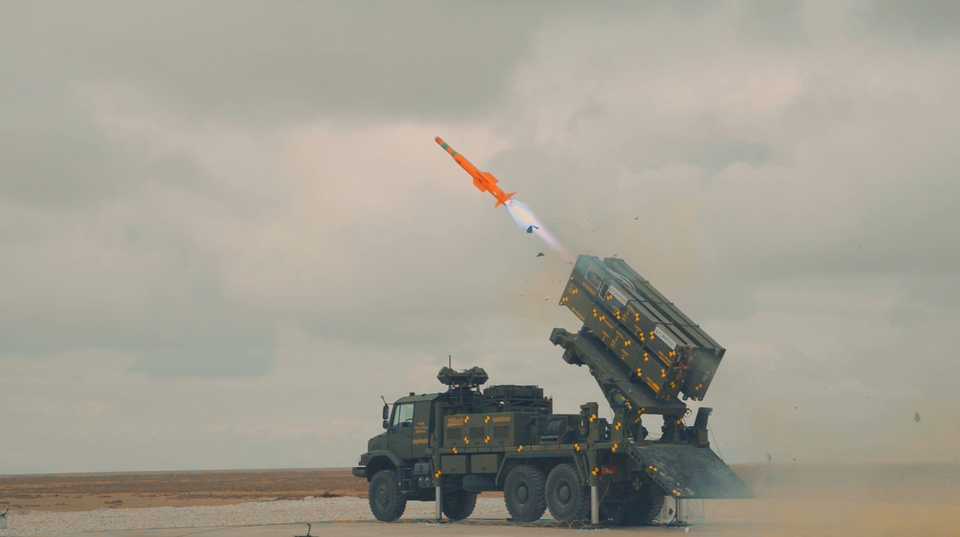
HISAR-A could hit targets within the range of 15km and at a 10km altitude, while HISAR-O reaches targets within a range of 25km with at least 18 missiles.
Moreover, HISAR-O can simultaneously detect and track more than 60 warplanes within a range of 40-60km.
A land-based transportable system, KORAL, developed by Turkey’s leading defence company ASELSAN, is capable of intercepting, jamming and deceiving radar systems.
Long-range air defence system and fighter jet
Turkey has long been working on producing a domestic long-range air defence system and domestic fighter jets under the light of the Vision for 2023.
“I hope our warplane, which will be indigenous at every stage of design and production, will roll out of the hangar in 2023,” Turkish President Recep Tayyip Erdogan said on February 5.
Turkey’s acquired S-400 Russian air defence system prompted the US to remove Turkey’s partnership from the F-35 programme in July.

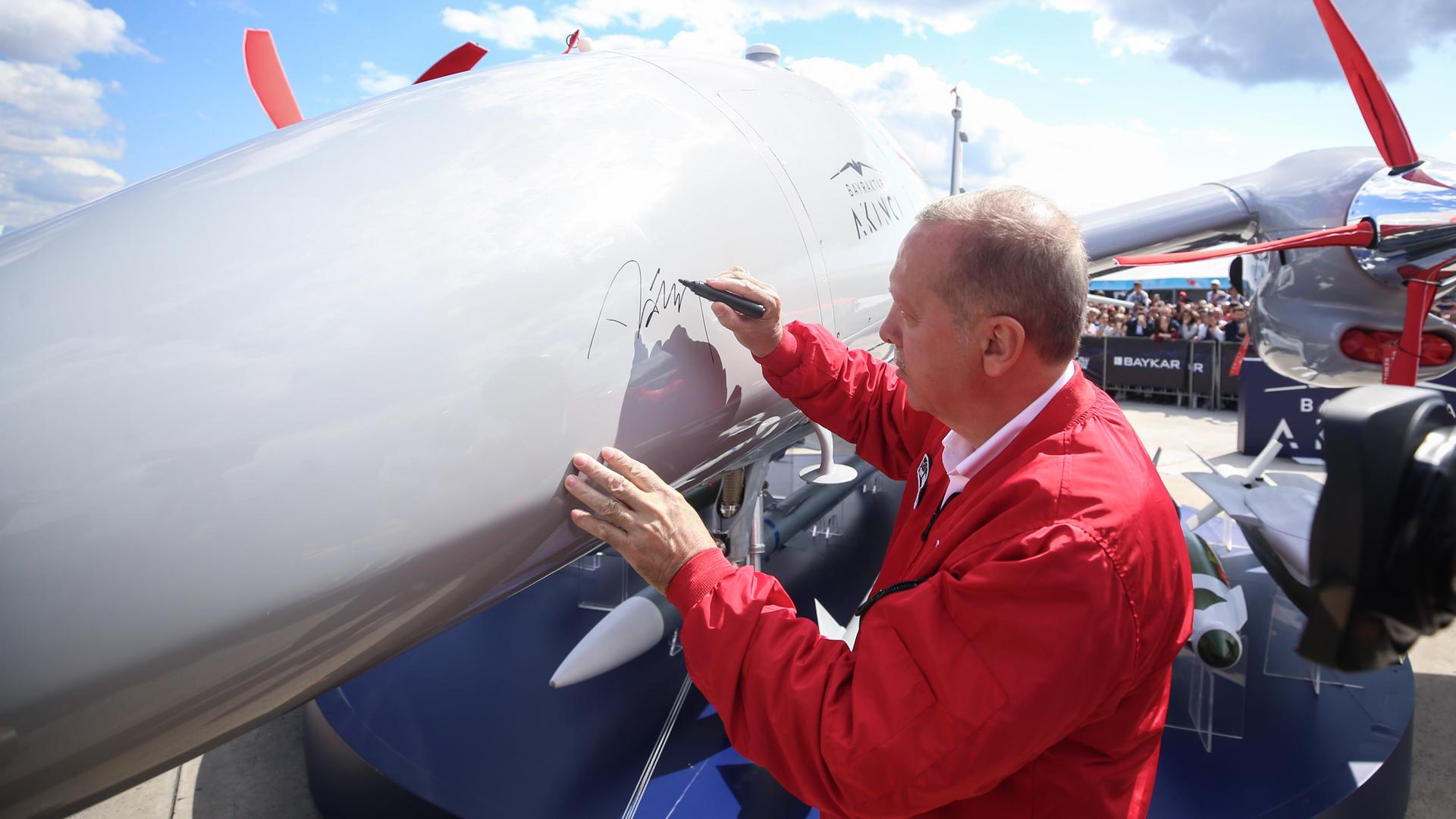








Discussion about this post